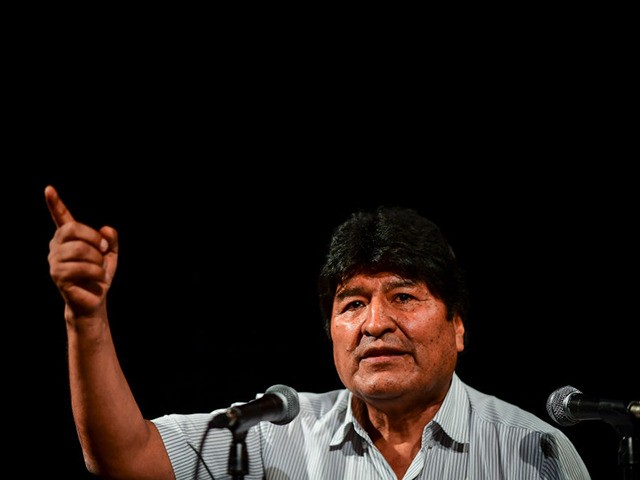Former Bolivian President Evo Morales called for protests on the Bolivia-Argentina border against the country’s interim government, according to local media reports this weekend.
In an interview with Radio La Red, Morales confirmed that the demonstrations will take place Sunday December 29. Although he did not specify a location, local media are reporting that the Argentinian border towns of Salvador Mazza and Oran are currently under consideration, both of which have large Bolivian communities.
“This morning I decided to summon the companions of the MAS (Movement for Socialism) for next Sunday at the border between Argentina and Bolivia where we will elect our candidate for the upcoming elections in Bolivia,” Morales said on Sunday.
A far-left revolutionary who ruled Bolivia for 14 years, Morales resigned from office and fled to Mexico last month after an audit by the Organization of American States (OAS) found “irregularities” in the results of October’s presidential election. Morales won that election, granting him a fourth term, despite the Bolivian constitution containing term limits that made his candidacy illegal.
Morales has since been granted asylum by Argentina, where socialist Alberto Fernandez recently won back power from Mauricio Macri’s center-right administration. Fernandez has so far refused to recognize interim President Jeanine Áñez as Bolivia’s rightful president and has offered Morales security at the upcoming protest.
“The Argentine government will accompany me to ensure security and we estimate that around 1,000 leaders will attend,” he said.
Áñez’s administration has pledged to hold free and fair elections, although a formal date has not yet been agreed. Morales has been banned from standing in the upcoming election, although he is overseeing the selection of their yet-to-be-named presidential candidate.
During the interview, Morales said there were many possible candidates, including former foreign ministers Diego Pary and David Choquehuanca, former economy minister Luis Arce and 30-year-old union leader Andrónico Rodríguez.
Last week, Bolivia’s chief prosecutor issued a warrant for Morales’ arrest on charges of sedition and terrorism. Meanwhile, the new government also filed a petition with the International Criminal Court (ICC) accusing him and several of his senior officials of “crimes against humanity” committed in the aftermath of his resignation in November.
Audio recordings presented by the Interior Ministry reveal Morales met with coca farmers from Chapare following his resignation to plan and coordinate attacks and civil disobedience across cities in Bolivia. At one point, he was heard urging supporters to block the passage of food and other essential amenities to create a state of chaos across the country.
Since taking office, Áñez has taken swift action to start undoing Morales’s left-wing legacy, re-establishing relations with the United States and cutting them off with rogue states such as Cuba and Venezuela.
Speaking earlier this month, Áñez said that if Morales does not intend to return home to face trial then he should let Bolivians “live in peace” and by ceasing to interfere in the country’s internal affairs.
“We would ask (Evo Morales) to let us live in peace,” she said. “Hopefully, he will not continue his sedition and terrorism from where he is as he must respect its refugee status. We will not allow him to steal more elections.”
Follow Ben Kew on Facebook, on Twitter at @ben_kew, or email him at bkew@breitbart.com.

COMMENTS
Please let us know if you're having issues with commenting.